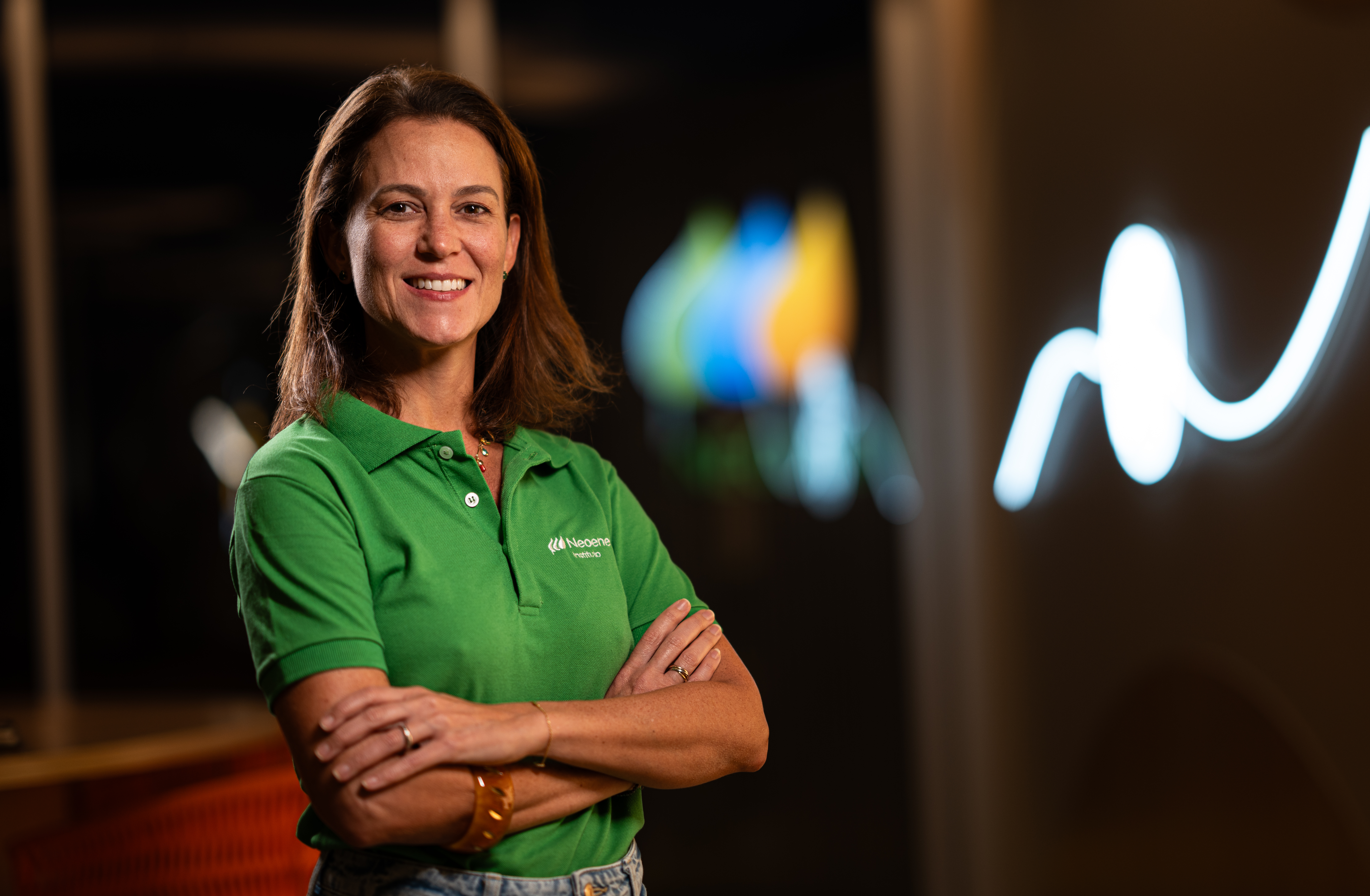- Products and Solutions
2026-01-29
Neoenergia conquista Prêmio Ibero-Americano de Qualidade pelo desempenho de suas distribuidoras
2026-01-21
Alceu Valença e BaianaSystem se unem em parceria inédita para campanha de segurança na rede elétrica da Neoenergia no Carnaval
2026-01-14
Instituto Neoenergia destina mais de R$ 27 milhões em leis de incentivo para projetos sociais em 2025
2026-01-13
Neoenergia energiza último trecho da linha de transmissão Alto Paranaíba
2025-12-22
Neoenergia abre inscrições para sua primeira turma da Escola de Operadores do Centro de Operações Integradas
Renata Chagas, CEO of the Neoenergia Institute

Private Social Investment: paths and challenges for climate resilience
It's been more than three weeks since the National Meteorological Institute (Inmet) issued the first red alert for expected rains in Rio Grande do Sul. Since then, we have been following, perplexed, the consequences of one of the greatest natural disasters in the history of our country. Hundreds of dead and missing, millions of people affected and hundreds of thousands displaced by the extreme weather event that has impacted more than 450 municipalities in Rio Grande do Sul.
In the midst of this sad reality, a chain of solidarity has emerged that is mobilizing the entire society in favor of donations for the victims. Essential items and financial resources are sent from all regions of Brazil to minimize the pain and suffering of those who saw the force of water destroy lives and dreams. Organizations have been playing an important role in this process, actively contributing to humanitarian aid and emergency support actions.
But we - companies, institutes and foundations - must act with that same determination in predictive initiatives to combat climate change. Just as important as providing answers to extreme events is greater adherence of the climate resilience agenda to Private Social Investment (ISP) strategies. Intense weather phenomena will be increasingly common over the next few years and we will need to be well prepared to face them.
However, data from the GIFE Census 22-23 indicate that “Natural environment and sustainability” and “Urban environment and sustainability” are thematic areas of activity of only 26% and 23% of the organizations, respectively, and received only R$ 277 million of the R$ 4.78 billion mobilized by the ISP. Simultaneously, BISC 2023 shows that the coverage rate of Corporate Social Investment (ISC) in projects and programs associated with “Environment in communities” fell from 50% in 2020 to 31% in 2022. In the same period, “Protection of flora and fauna” went from 33% to 15%.
The numbers call attention to the need to concentrate greater efforts on issues related to the management of environmental collapse. In this regard, I highlight the Brazilian Commitment to Philanthropy on Climate Change, led by GIFE and launched at COP 28 last year, as a vital articulation to reverse this situation. A signatory to the movement, the Neoenergia Institute envisions great opportunities for coordinated action between organizations, especially in vulnerable territories, to guarantee climate justice in the country.
That's why we support initiatives connected to the defense of the environment and Brazilian biomes. Integrated with our Biodiversity and Climate Change pillar, the Coralizar and Flyways Brasil projects carry out environmental education activities and conservation and maintenance of coral and wadowl species, respectively. The first operates in the Coral Coast Environmental Protection Area (APACC), the largest federal coastal marine conservation unit in the country, located off the coast of Pernambuco. The second, on the other hand, is present in the Potiguar Basin, an area that encompasses a complex network of ecosystems in Rio Grande do Norte and Ceará and recently received the title of WHSRN Site (Hemispheric Network of Waders Reserves), due to its importance for the protection of migratory shorebirds and their hemispheric habitats.
Global climate change is one of the main barriers to achieving the SDGs and the ISP will be fundamental to overcome this challenge. I close my reflection by sharing a publication from GIFE: What can Private Social Investment do for climate change? Companies, institutes and foundations not only can, but must make a difference in this process.
The future of the planet is also in our hands.